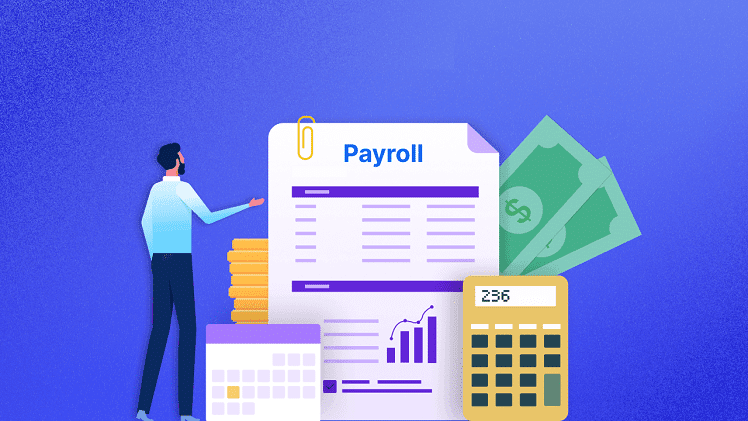The Future-Proofing Power of Payroll Software: A Path to Sustainable Growth and Security

Introduction: The Evolving Role of Payroll Software
In today’s rapidly evolving business environment, the importance of implementing efficient, secure payroll systems has intensified. Businesses are increasingly turning to advanced payroll software as a solution to manage their complex payroll operations efficiently. These systems have transformed from transaction tools to comprehensive solutions that increase operational efficiency and reinforce data security. By digitizing payroll, companies ensure that processes are handled precisely and punctually, reducing manual errors and boosting transparency across operations. This shift is not just a choice but a requirement due to increasing regulatory and compliance requirements while organizations work to stay competitive.
Understanding the Need for Adaptable Payroll Solutions
The need for adaptable payroll solutions is more apparent in the fast-paced business world than ever. Whether you’re a burgeoning startup or a well-established corporation, the ability to adjust and customize your payroll systems to meet specific organizational needs is crucial. This adaptability ensures that businesses can quickly align with internal goals and regulatory requirements, especially in sectors with highly dynamic workforce patterns like retail, hospitality, and technology. For instance, a tech startup with rapidly changing project-based staffing needs would benefit from a system that can easily accommodate these fluctuations while supporting remote and freelance teams familiar with the industry. This level of customization empowers organizations to respond proactively to industry shifts and other external pressures, maintaining operational resilience and flexibility.
Enhancing Efficiency Through Integration
Efficiency is a primary objective in any operating system, and in payroll administration, integration plays a vital role in achieving efficiency improvements. By integrating payroll software with current enterprise systems like HR management, accounting software, and employee scheduling tools, companies can reduce duplication and improve the precision of data processing. This integration enables a unified data environment where vital information moves effortlessly across departments, cutting down on manual data input time and lowering the risk of mistakes. The advantages of this integration go beyond everyday operational duties; it also allows for strategic understanding by providing detailed data sets that aid in workforce analytics. Therefore, businesses can make well-informed decisions rapidly, efficiently allocate resources, and better strategize for future expansion and scalability.
Data Security: Protecting Valuable Information
Amid growing cyber threats and data privacy concerns, securing sensitive payroll information has become a critical priority for businesses. Advanced payroll software provides a fortressed layer of security through robust encryption mechanisms and multi-factor authentication, essential to protect against unauthorized access and data breaches. In line with the latest data privacy trends, companies must continuously update and fortify their cybersecurity measures. This safeguards the company’s financial and personal data and builds trust with employees, who expect their data to be handled with the highest security standards. Businesses can maintain their reputation and meet global data protection requirements by prioritizing data security in payroll activities.
Scalability: Supporting Business Growth
Scalability is a fundamental feature of effective payroll software, supporting businesses as they grow and evolve. As organizations expand, whether through increased headcounts or international market penetration, their payroll needs become more intricate. Scalable payroll solutions ensure that these changing demands are met without causing disruptions to regular operations. This means maintaining efficiency and continuity as the business scales up, with support for various geographic locations, different pay structures, and multi-currency processing. By enabling companies to manage these complexities seamlessly, scalable payroll systems allow focus to remain on strategic initiatives rather than operational hurdles. Consequently, businesses can drive innovation and expansion while ensuring that their payroll operations scale in tandem—correctly, compliantly, and efficiently.
Staying Compliant with Changing Regulations
Keeping up with the ever-changing labor regulations and tax laws landscape can take time and effort for businesses. However, payroll software can alleviate the compliance burden by automating the necessary updates and providing alerts about new regulatory requirements. This capability minimizes the risk of human error and reduces the potential for legal complications and penalties. By strictly adhering to the latest compliance laws, businesses can protect themselves against unforeseen challenges and focus on enhancing their core operations. A reliable payroll system helps with compliance and cultivates a culture of dedication and precision, boosting stakeholder confidence and enhancing corporate image.
Real-Life Examples: Success Stories of Payroll Efficiency
Numerous companies have successfully implemented payroll software, significantly improving operational efficiency and cost reductions. For example, a mid-sized retail chain experienced a 30% decrease in administrative costs after adopting a comprehensive cloud-based payroll solution. This dramatic cost saving was achieved through automated processes and minimized manual interventions, leading to more accurate data handling. Similarly, a multinational firm integrated its payroll systems with its global HR platform, simplifying cross-border payroll administration and ensuring compliance with varied international regulatory environments. These success stories underscore the tangible benefits of using advanced payroll systems to drive efficiency and strategic agility, proving that investment in innovative payroll technologies yields substantial returns.
Conclusion: The Road Ahead for Payroll Systems
As we look toward the future, the strategic importance of robust and adaptable payroll systems in driving business success cannot be overstated. By investing in flexible, secure, and scalable solutions, companies can address current operational challenges and lay the groundwork for future opportunities. Staying informed about emerging technology trends in the workforce will empower organizations to fully leverage the capabilities of modern payroll systems to enhance productivity and promote sustainable growth. Ultimately, those who embrace these technologies will position themselves as industry leaders, resilient and prepared for whatever challenges the future holds.





